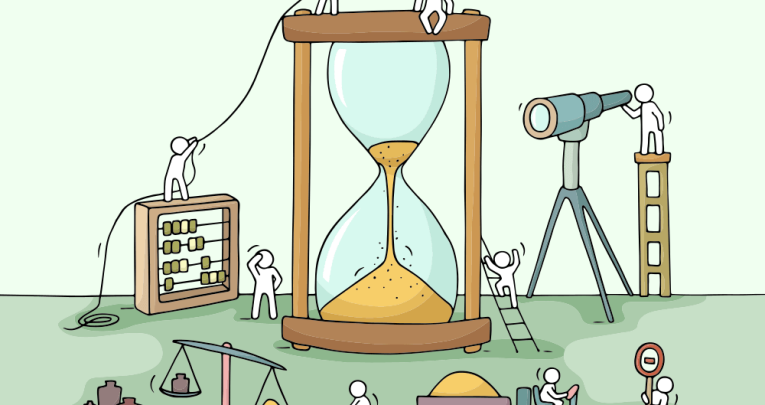Why Teachers Should Know the History of Education

Understanding how schools developed in the past can help us make good decisions about how they should look now and in the future, argues Harley Richardson…

Are you curious about the past? Are you a keen reader? If the answer to both these questions is yes, you’re in luck. There are history books available about pretty much every aspect of human life over time, from the general to the niche.
Whether you’re interested in the rise of the Tudors, naval warfare, the Chelsea Flower Show, wrestling, witchcraft, beekeeping or Italian horror films, there’s a title out there for you.
Or is there? Here’s a notable exception to the rule: education. Because as far as I’m aware, there is no general history of education in print in the UK at the moment, nor has there been since the 1970s.
True, a couple of recently published books cover the modern era.
Progressively Worse: The Burden of Bad Ideas in British Schools by Robert Peal (2014) and Education in Britain: 1944 to the Present by Ken Jones (2015) provide two very different and useful perspectives on the path taken by education over the last 70 years.
But if you browse the shelves of your local bookshop, you’d be forgiven for thinking that there were no schools at all in Britain before the 1944 Butler Act.
Yet education is never out of the news. Everyone has a view on it. Blogs and social media are alive with debates about it. And there’s no shortage of books on education research and classroom practice. So what’s responsible for our apparent lack of curiosity about the history of education?
A fascinating story
It was only by accident that I became interested in the topic, after picking up a tattered copy of SJ Curtis’ History of Education in Great Britain (1948) in a secondhand book shop more than a decade ago.
It was a revelation – a rich and fascinating story stretching over fifteen hundred years and charting how schools and teaching have developed as our knowledge about the world and our sense of the potential of humanity have expanded.
Did you know that public schools were originally charity schools available only to the poor? Or that the word ‘glamour’ derives from ‘grammar’ and the feeling of magic and wonder associated with knowledge and learning? Or that one of the motivations for setting up the state system in the 19th century was a fear of what might happen if the socialist working classes educated themselves? I certainly didn’t.
I’ve since become a history of education junkie. I’ve tracked down every source of information I can find on the topic and distilled what I’ve learned into several illustrated talks.
Most of the teachers who’ve attended these have admitted that they knew little about how their profession took shape. They may have had an hour on Rousseau and Dewey during their PGCE if they were lucky, but that was it.
I suspect this surprising gap in professional knowledge may have something to do with a decision made by the Conservative government of the 1980s.
The Department of Education was concerned about the dominance of progressive theories in university training departments at the time, and so reduced the amount of history and theory in teacher training in favour of ‘ideologically neutral’ practical classroom experience.
Ideas and insights
But I don’t think we can place all the responsibility for our collective ignorance on political policies from thirty years ago. In the intervening years the government’s pragmatic outlook appears to have been internalised by many teachers.
It’s worth noting that recent attempts to reinvigorate teaching as a profession, by organisations such as researchED and the Chartered College of Teaching, have focused almost exclusively on research into ‘what works in the classroom’. And the history of education barely gets a mention in most popular teaching manuals.
This is a big mistake, in my view, for a number of reasons. For starters, the history of education is a great source of ideas.
Dennis Hayes, Professor of Education at Derby University, argues that every teacher should read Plato’s Republic, Rousseau’s Emile, and Dewey’s Democracy in Education.
Why? Because those books made grand claims about education and society – such as the view that we are best governed by highly educated experts (Plato) or that children learn best by following their interests (Rousseau) – and they followed these claims through to their logical conclusions, warts and all.
The practical insights provided by classroom research and cognitive psychology pale in comparison to what can be gained by getting to grips with these remarkable products of imaginative thinking, available to us all for the price of a paperback and several hours of our time.
New lessons
Yet many question the value of the ideas and experiences of the past, claiming that the challenges facing society in the 21st century are unique and the past has nothing to tell us about them. But education’s past can shed light on modern issues.
For example, in The Charity School Movement (1938), MG Jones describes the 18th century reaction against the charity day schools of the time. These taught poor children the three Rs, knowledge which critics felt would never be needed and raised the pupils’ expectations unhelpfully.
Bernard Mandeville, in his Essay on Charity and Charity Schools (1724), wrote that school learning encouraged idleness, arguing that “The more a shepherd and ploughman know of the world the less fitted he’ll be to go through the fatigue and hardship of it with cheerfulness and equanimity”.
This led to calls for children to instead be taught in-demand skills such as spinning and knitting in “working schools”, which would sell what the pupils produced, generating an income for both the children and the schools.
Yet there turned out to be no market for this produce and guess which young people thrived? Yes, it was the ones who could read and write, enabling them to break into the previously middle class arenas of book keeping and commerce.
Perhaps there’s some lessons there for modern day advocates of practical, career-oriented education.
“What use is it?” History of education, like any form of history, will always come up against this question. The correct response is “Maybe none, but so what?”.
The history of education is worth paying attention to because, in essence, it’s the story of humanity and our evolving notions about what we’d like to pass on to future generations; learning more about it can only enrich our understanding and appreciation of what goes on in schools today.
Harley Richardson is Director of Design & Development at Discovery Education and a coordinator of the Academy of Ideas Education Forum.
Join the conversation
The Academy of Ideas Education Forum gathers monthly to discuss trends in education policy, theory and practice. The first forum of the Autumn takes place on Thursday 27 September, but in the meantime there will be a special strand of debates at the researchED national conference on Saturday 8 September. Find out more at academyofideas.org.uk/forums/education_forum.











